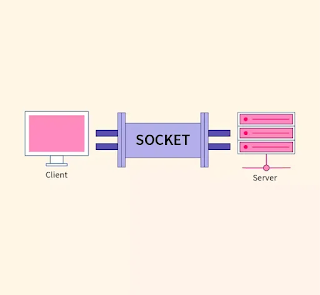C
What is C Programming Language ?
The C programming language is a procedural and general-purpose language that provides low-level access to system memory. A program written in C must be run through a C compiler to convert it into an executable that a computer can run. Many versions of Unix-based operating systems (OSes) are written in C and it has been standardized as part of the Portable Operating System Interface (POSIX).
Today, the C programming language runs on many different hardware platforms and OSes such as Microsoft and Linux.
Pros and cons of C
The C language comes with a set of special characteristics, making it one of the most widely used languages of all time. The following are the main benefits of using C:
- Structured. It offers a structured programming approach for breaking down problems into smaller modules or functions that are easy to understand and modify.
- Portable. C is machine-independent and C programs can be executed on different machines.
- Mid-level programming language. It's a mid-level language that supports the features of both a low-level and a high-level language.
- Rich library. It offers numerous built-in library functions that expedite the development process.
- Dynamic memory allocation. C supports the dynamic memory allocation feature, which can be used to free the allocated memory at any time by calling the free() function.
- Speed. It's a compiler-based language, which makes the compilation and execution of code faster. Since only essential and required features are included in C, it saves processing power and improves speed.
- Pointers. C uses pointers, which improve performance by enabling direct interaction with the system memory.
- Recursion. C enables developers to backtrack by providing code reusability for every function.
- Extensible. A C program can be easily extended. If code is already written, new features and functionalities can be added to it with minor alterations.
C also comes with a few shortfalls, even though it's an ideal language for programming beginners due to its simple syntax, algorithms and modular structure. The following are a few disadvantages of using C:
- OOP features. C doesn't extend its support for object-oriented programming (OOP) features, which enables the creation of subclasses from parent classes. Unlike Java, Python or C++, multiple inheritances can't be created in C, which makes it difficult to reuse existing code.
- Namespace feature. C lacks namespace features, which means the same variable name can't be reused in one scope. Without namespaces, it's impossible to declare two variables with the same name.
- Run-time checking. C doesn't display code errors after each line of code; instead, all the errors are presented by the compiler after the program has been written. This can make code checking a challenge, especially for larger programs.
- Exception handling. C lacks exception handling, which is the ability to handle exceptions, such as bugs and anomalies that can happen during source code
- Constructor and destructor. Since C isn't object oriented, it doesn't offer constructor and destructor features. Constructing or destructing a variable in C must be done manually through a function or by other means.
- Garbage collection. C isn't equipped with garbage collection. This important feature automatically reclaims memory from objects that are no longer required by the library or an app.



Comments
Post a Comment